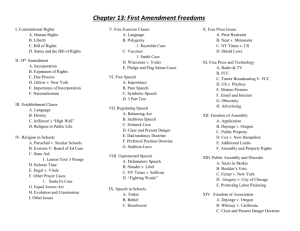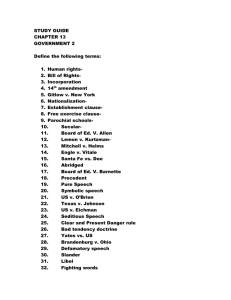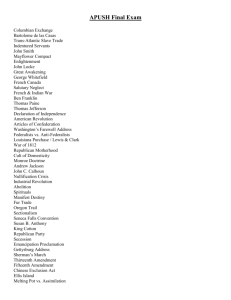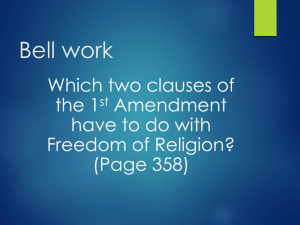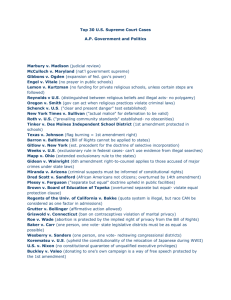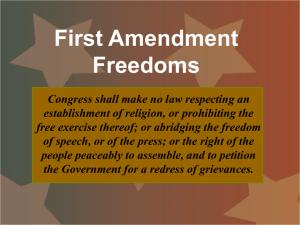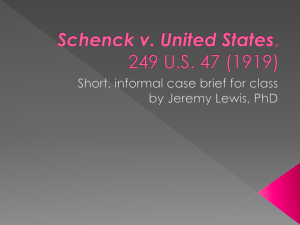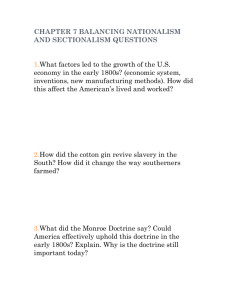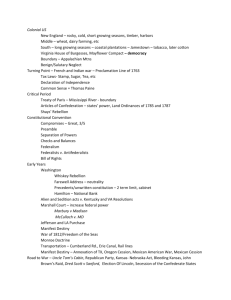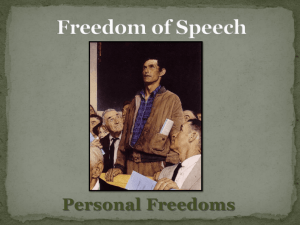Document
advertisement
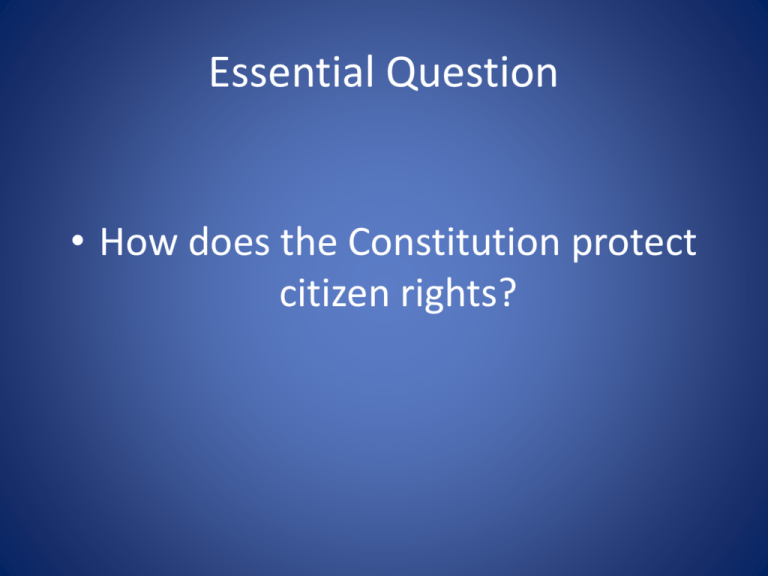
Essential Question • How does the Constitution protect citizen rights? Citizen Rights (2) Freedom of Speech • Democratic government requires every person has the right to speak freely Pure Speech • Verbal expression of opinion before an audience that has chosen to listen Symbolic Speech • Using actions and symbols to express opinions Texas v. Johnson (1989) • Flag-burning is protected as symbolic speech Limiting Speech • Right of free speech must be balanced against the need to protect society Seditious Speech • Any speech urging resistance to lawful authority or advocating the overthrow of the government Court Guidelines • Three constitutional tests to establish limits on speech: a. The clear and present danger rule b. The bad tendency doctrine c. The preferred position doctrine Clear and Present Danger • When the speech in question clearly presents an immediate danger Schenck v. United States (1919) • Schenck urged draftees to obstruct the war effort in WWI • During wartime this speech threatened the well-being of the nation The Bad Tendency Doctrine • Gitlow v. New York (1925) • Speech restricted if it had a tendency to lead to illegal action Preferred Position Doctrine • First Amendment freedoms hold a preferred position over competing interests • Government must show limiting them is absolutely necessary Brandenberg v. Ohio • KKK leader arrested for refusing to end a rally and cross burning • Court ruled in his favor as there was no evidence his speech intended to create immediate acts of violence Defamatory Speech • 1st Amendment does not protect false speech that damages a person’s name • Slander – spoken • Libel - written “Fighting Words” • Words so insulting they provoke immediate violence • Do not constitute free speech Freedom of the Press • At times the right of the press to gather and publish information conflicts with other rights Prior Restraint • Censoring of the press by government • Can only occur in cases related to national security Sheppard v. Maxwell (1966) • Overturned conviction of murderer because of pre-trial press coverage Reno v. American Civil Liberties Union (1997) • Internet speech deserves the same First Amendment protection as print media Freedom of Assembly • Right of the people to peaceably assemble and petition the government DeJonge v. Oregon (1937) • DeJonge was convicted of holding a Communist Party meeting • Conviction overturned as peaceful assembly for discussion Public Assembly • Freedom includes right to parade and demonstrate in public Cox v. New Hampshire (1941) • A city can require a parade permit in order to march because of safety to citizens Grayned v. City of Rockford • Upheld a ban on demonstrations near schools that were intended to disrupt classes The Skokie Case (1977) • The American Nazi Party planned to hold a rally in a Jewish suburb of Chicago • Court allowed the march Feiner v. New York (1950) • Police arrested a man whose public speaking incited a violent crowd response • Court upheld his arrest as an act to keep the peace
